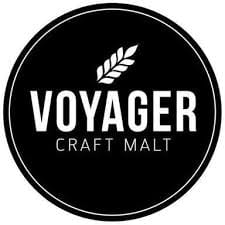Background:
Voyager Craft Malt is an artisan malt business located in Whitton, NSW. In 2014, Voyager Craft Malt, began as a start-up venture by two local entrepreneurs, and has quickly established a name for producing high quality small batch, single origin, malts from locally grown and regionally sourced grains. The malts Voyager produce are highly sort after by both craft beer and whisky producers across Australia. The success of the business has presented a significant challenge, as current demand for their product is outstripping production capacity. Voyager takes great pride in sourcing the considerable heat used in the malting process sustainably and maintaining a sustainable focus for their entire business. It is also something demanded of them by their customers. Currently, this is done by utilising waste heat from a bio-char business which is co-located with Voyager. However, the expansion of the business necessitates a move to a green field site and a re-evaluation of how they can supply sustainably sourced heat.
Objectives:
This project aims to investigate the techno-cost-effective business strategy for the integration of energy and heat in a small batch malting plant at the end of an electrical network and to undertake a Feasibility Assessment and Process Implementation of a Clean Energy Heat Source for Voyager Craft Malt.
Specifically, this project seeks to address the requirement for additional process heat to meet the projected increase in production capacity. It will involve conducting a techno-economic feasibility of a range of different renewable heat sources, such as biomass fired boilers, solar thermal, solar PV driven heat pumps, electric driven heat pumps powered by green grid sourced electricity (power purchase agreement) and cogeneration of heat and power. The students selected for this project will be required to travel to Voyager Malt and conduct a site assessment identifying the key requirements of the business, the available area for mechanical plant, available rooftop space, process requirements, electrical grid limitations and more. Following the feasibility assessment, an implementation plan and accurate costing of the recommended technology will be undertaken. This may involve engineering design of any additional plant or infrastructure required.
Key research questions:
- Using pinch analysis, what is the minimum requirement for process heating and cooling in a batch malting process?
- What is the lowest cost energy solution for an ‘end of grid’ manufacturing process located in regional NSW?
- What is the most effective heat exchange network design to maximise process heat recovery?
Deliverables:
The deliverables of this project will be staged with an initial focus on data collection.
| Deliverable | Description | Initial Timing Estimate |
| Commencement Workshop | Collect data from Voyager:
· Historical energy prices · Historical energy use by Voyager including peak usage. · Production volumes · Existing process heat requirements and parameters (eg. Temperature, flow rates etc.) · Proposed production volumes |
Feb |
| Milestone 1 | Project Plan | March |
| Milestone 2 | Some preliminary analysis of data
· Establish energy performance indicators (e.g. MJ/tonne of malt) · Minimum utility requirements from pinch analysis. · What is the lowest cost clean energy solution to meet demand. · Preliminary heat exchange network to most effectively recover process heat?
|
May |
| Milestone 3 | Progress report. | Early June |
| Milestone 4 | Draft Project Report. | Early September |
| Milestone 5 | Project Report. | End September |
| A presentation on the project report. | End October |
Governance:
This project will be managed through weekly meetings with students, whom will seek draft approval from the Project Managers (Marcos Anastassiou and Dr Cameron Stanley) and through frequent contact with the Project Sponsor (Brad Woolner) to ensure work is satisfactory.
Reporting Requirements:
There will be draft approval and/or progress reporting fortnightly to the project managers.
Assumptions and Constraints:
Power usage data by Voyager is expected to be available, as well as data on costs associated with the plant and heat recovery data.
Risks and Minimisation Strategies:
Incomplete data collection resulting in inaccurate recommendations.
- This will be minimised by collecting as much data as possible from as many sources as possible early on
Low data resolution.
- The highest resolution data available will be sourced to ensure accuracy.
Student attributes:
Students should have a passion for sustainability and practical engineering, a broad understanding of various renewable energy sources available for process heating (or a willingness to learn) and a desire to work in a fast moving and dynamic team.
Number of students sought:
2 Master of Engineering Students
4 Undergraduate Students- (2 Mechanical & 2 Sustainable Systems)

